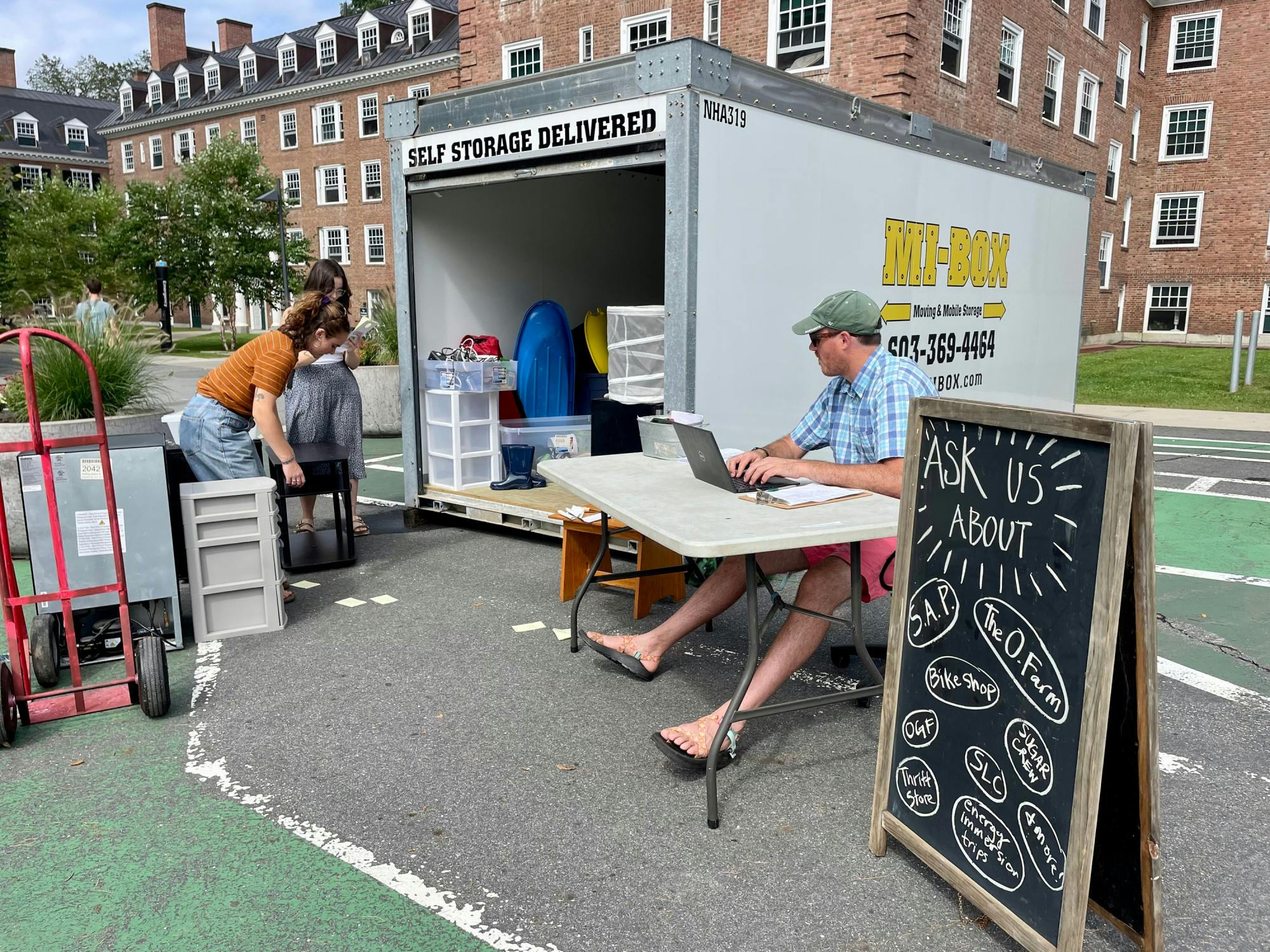Beginning in June, the Office of Sustainability, partnered with College Residential Operations, opened a free thrift store called “The Free Market,” according to Office of Sustainability program assistant Rachel Kent ’21. Located in the basement of North Massachusetts Hall, the Free Market is open from 7:00 to 9:00 p.m. on Tuesdays and from 12:00 to 3:00 p.m. on Saturdays and Sundays, though Kent said those hours are subject to change.
According to Kent, a key reason why the thrift store was opened is because of an overabundance of end-of-the-term clutter. After students move out of their dorms, resident halls are often filled with discarded clothes, dorm essentials and other miscellaneous belongings. In past years, the College would throw away any items that were left behind, Kent added.
“There is such an abundance of our waste,” she said. “It’s just students who are transient and moving out who get rid of [their stuff], because they need to offload it and move on to whatever’s next for them.”
Free Market intern Roan Wade ’25, who conceived the idea to open the Free Market last fall, added that people often throw away “perfectly good” items — a trend which represents how the College is “deeply rooted in class privilege.” Wade added that items discarded by students can often be very useful to others.
“[The Free Market] was inspired by radical principles of mutual aid,” Wade said. “It’s about building community power.”
Wade, who worked as an intern in the College Sustainability Office throughout the last year, said she brought the idea to her employer last. After running three pop-up thrift stores last November, January, and April for the Sustainability Office, Wade said there was a “major issue” as the pop-up stores were not enough to meet the demand, she added.
“There would be a line out of the door for the building,” she said. “It was just a very chaotic experience and I felt like people were fighting to get that last winter jacket.”
Trevor Geyer ’26, who visited the Free Market last spring, said he felt the space was a “beautiful” example of student support on campus.
“It feels like students from all parts of campus came together,” he said. “It can be hard to find communities during the fast-paced Dartmouth term, but [the Free Market] really represents this grassroots coming-together of students.”
Wade emphasized how the store serves as a “hub for building community,” which she added was the “ultimate” goal of the project. According to Wade, one way the Free Market integrates the community is through the use of artwork throughout the space.
“We’re looking at ways to integrate art that the community makes,” she said. “Part of it is through which t-shirts we have decided to display on the wall, and part of it is inviting local artists to put up their work.”
The Free Market also works with the First Generation Office and the First Year Summer Education Program to ensure that students who have a need for certain items will be able to access them, according to Wade. In their partnership, the Office of Sustainability set up free clothing racks outside the First Generation Office and the Student Wellness Center to accommodate their needs.
According to Kent, another priority for the Free Market is to establish itself as a queer-friendly space and provide gender-affirming care, as the free clothing is a “super low stakes” way to provide support. She added that approximately 40% of students who visit the thrift store identify as queer.
“Clothing can be a source of gender affirming care, which often isn’t accessible to working class people. So, students can use this space as a way to explore their gender identity,” Wade added.
Since the opening of the Free Market, Kent said donations and student visitors have been more than they anticipated, adding that the market’s storage room was filled “almost to the ceiling” with bags of clothing.
“In just one term in which most of the campus population is not even here, we were able to move so much of that clothing back into people’s dressers and closets and out of the landfill,” she said. “We have a hunch that this means we’re having a more circular system on campus of clothing wearing and redistribution.”
Ultimately, Kent emphasized how the Free Market is ultimately about forming a community to tackle the problems of today.
“You can’t talk about sustainability without talking about justice and equity,” she said. “The thrift store is really about community building and the formation of networks of mutual aid in the face of climate catastrophe.”




